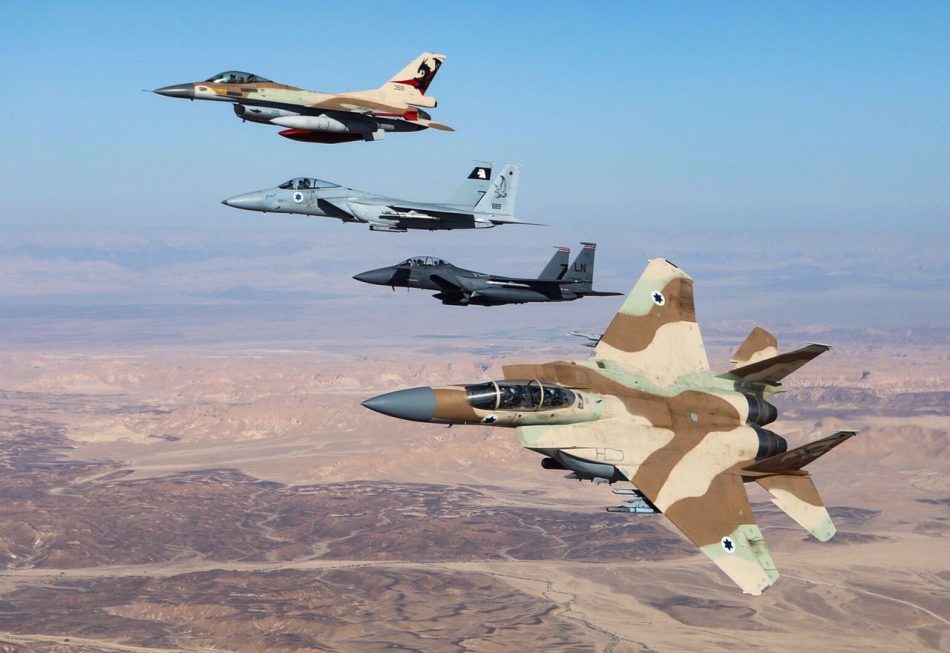No historical analysis of terrorist bombing campaigns, false flag operations, hostage diplomacy, and political assassinations in the modern era is complete without examining the manner in which Israel has executed its foreign policy objectives in the Middle East during the course of the past 50 years.
A former Mossad operative quoted in Ronen Bergman’s Rise and Kill First: The Secret History of Israel’s Targeted Assassinations says Israel carries out “mass killing for killing’s sake” in order to “sow chaos and alarm, among civilians, too.”
“Since when do we send donkeys carrying bombs to blow up in marketplaces?” Bergman asked, referring to Israel’s large-scale campaign of car bombings in Lebanon during the early 1980s. The bombs killed hundreds of Palestinians and Lebanese civilians, and were meant to incite a violent response from members of the Palestinian Liberation Organization (PLO), so that Israel could have a pretense to invade Lebanon in 1982.
In its multiple invasions and bombing campaigns in Lebanon, the Israeli military has killed more than 20,000 civilians. At home and abroad, Israel is objectively one of the worst human rights violators in the world today.
That said – how should we feel when Israel targets a neighbor that is an even worst violator of human rights and international law than itself, namely the Assad regime in Syria? Assad is guilty of carrying out the worst crime of the current century, a sectarian genocide that has killed more than 1 million Syrians and displaced a further 12 million.
If you ask me, I feel pretty darn good about Israel targeting the Assad regime’s military positions and installations and Iranian backed militias in Syria. And I say that as someone who has spent his entire adult life opposing Israel’s barbaric mistreatment of the Palestinian people and its illegal military campaigns in Lebanon.
The Syrian people – specifically the dead, displaced, and the 3 million trapped in Idlib province – have been betrayed by all those who had promised at one point or another to come to save them from Assad’s chemical weapons, barrel bombs, sectarian and foreign militias, torture dungeons, mass rape facilities, and air power. So, why then should we condemn any action that might provide relief or even a sense of temporary justice for those pursued by the most blood thirsty dictator to inhabit this planet since the Second World War?
On Friday August 11, in the evening, Israeli warplanes targeted Assad regime positions on the outskirts of al-Mayadeen city in the eastern countryside of Deir Ezzor, killing seven Hezbollah militia fighters, according to the Syrian Observatory for Human Rights. They also aimed at unspecified targets in the town of al-Safirah, located southeast of Aleppo, an area known to have once contained an Assad regime missiles production facility, though leaving no known casualties.
Two weeks ago, at the end of August, Israeli warplanes also struck the T-4 Syrian military airbase – which is used by Iran throughout the country – with a “burst of missiles,” according to the Syrian news agency SANA.
Israel has a long standing practice of neither confirming nor denying its military operations against the Assad regime. But, if pro-Palestinian activists are recoiling at the idea of supporting Israel’s carefully targeted air campaign in Syria, then they would do well to remember that the Syrian dictator has slaughtered more than 4,000 Palestinian refugees since the war began in 2011, according to the Action Group for Palestinians of Syria.
Nearly 2,000 Palestinians were killed when the Assad regime shelled Yarmouk, home to 170,000 Palestinian refugees at one point, forcing many to the countryside, where many more were killed later by crossfire or Russian bombing campaigns. More than 600 Palestinians have also been tortured to death in the Assad regime prisons, with survivor testimonies describing the use of all forms of torture, including electrocution, beatings, and rape.
“They raped teenage girls without showing mercy. We could do nothing. They tortured me and my elder sister in various ways,” one survivor told Al Jazeera in 2018. “The beatings and torture never stopped. They put me in an electric chair. I was also beaten while lying on the ground.”
Today, Palestinians count among the millions of refugees trapped without adequate housing, food, and humanitarian assistance in northwest Syria and along the Turkish border, where they are bombed periodically by Assad’s most powerful ally – the Russian Air Force.
If limited Israeli military action against their genocidal protagonist gives them hope or reason to cheer, albeit momentarily, then who could possibly be against it?
The international community has totally failed the Syrian people, and the hundreds of thousands of Palestinian refugees in the country. The United Nations has failed in its promise to never allow genocide and ethnic cleansing to occur on its watch again, making a further mockery of its established norm – Responsibility-to-Protect, which holds that a country forfeits its right to sovereignty if its government becomes the primary security threat to its people.
If military action against a genocidal dictator does not constitute a just war, then the words “never again” mean absolutely nothing.
*The writer is a columnist and activist against Islamophobia.
September 20, 2020


